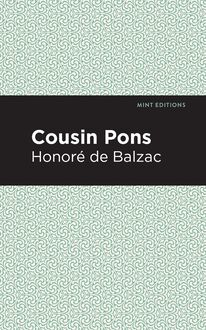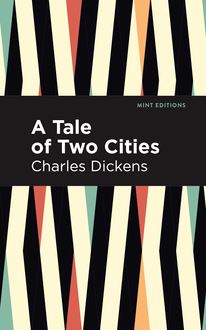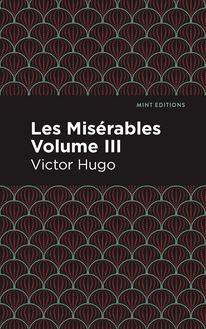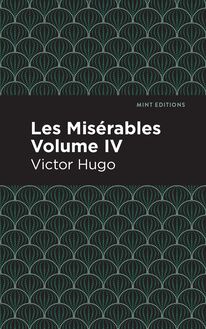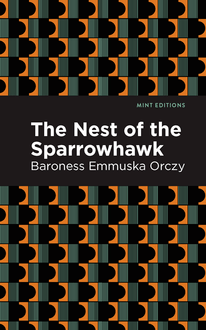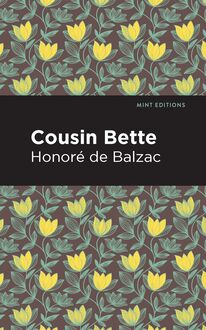-
 Univers
Univers
-
 Ebooks
Ebooks
-
 Livres audio
Livres audio
-
 Presse
Presse
-
 Podcasts
Podcasts
-
 BD
BD
-
 Documents
Documents
-
- Cours
- Révisions
- Ressources pédagogiques
- Sciences de l’éducation
- Manuels scolaires
- Langues
- Travaux de classe
- Annales de BEP
- Etudes supérieures
- Maternelle et primaire
- Fiches de lecture
- Orientation scolaire
- Méthodologie
- Corrigés de devoir
- Annales d’examens et concours
- Annales du bac
- Annales du brevet
- Rapports de stage
La lecture à portée de main
Vous pourrez modifier la taille du texte de cet ouvrage
Découvre YouScribe en t'inscrivant gratuitement
Je m'inscrisDécouvre YouScribe en t'inscrivant gratuitement
Je m'inscrisEn savoir plus
Vous pourrez modifier la taille du texte de cet ouvrage
En savoir plus

Description
After eight years away, Jean Valjean and Cosette, living under new identities attract the attention of their former innkeepers who are seeking money and revenge. With the help of an idealistic young man, the pair attempts to escape unscathed.
Despite their rough origins, Jean Valjean and Cosette have managed to create a peaceful life for themselves. Cosette has grown into a beautiful young woman and catches the eye of Marius. The two of them fall in love but their courtship is interrupted by Cosette’s sudden departure. After a brief hiatus, Marius discovers Cosette and Valjean have adopted new names and occupations. They are living as wealthy philanthropists and are being targeted by the innkeepers who recently moved to their city. Once again, they plan to extort Valjean and use Cosette as leverage.
In Les Misérables Volume Three: Marius, Valjean and Cosette are haunted by figures from their troubled past. Meanwhile, Marius is an unexpected ally who plays an integral role in their journey. This is one part of a captivating tale that’s been adapted multiple times for stage, television and film. The most notable being the 2012 Oscar-winning production from director, Tom Hooper.
With an eye-catching new cover, and professionally typeset manuscript, this edition of Les Misérables Volume Three: Marius is both modern and readable.
Sujets
Informations
| Publié par | Mint Editions |
| Date de parution | 24 mars 2021 |
| Nombre de lectures | 0 |
| EAN13 | 9781513284804 |
| Langue | English |
| Poids de l'ouvrage | 3 Mo |
Informations légales : prix de location à la page 0,0500€. Cette information est donnée uniquement à titre indicatif conformément à la législation en vigueur.
Extrait
Les Miserables
Volume III: Marius
Victor Hugo
Les Miserables was first published in 1862.
This edition published by Mint Editions 2020.
ISBN 9781513279787 | E-ISBN 9781513284804
Published by Mint Editions®
minteditionbooks.com
Publishing Director: Jennifer Newens
Design & Production: Rachel Lopez Metzger
Project Manager: Micaela Clark
Translated by: Isabel F. Hapgood
Typesetting: Westchester Publishing Services
More in This Series:
Les Miserables Volume I: Fantine
Les Miserables Volume II: Cosette
Les Miserables Volume IV: The Idyll in the Rue Plumet and the Epic in the Rue St. Denis
Les Miserables Volume V: Jean Valjean
C ONTENTS B OOK F IRST . P ARIS S TUDIED IN ITS A TOM I. P ARVULUS II. S OME OF HIS P ARTICULAR C HARACTERISTICS III. H E IS A GREEABLE IV. H E M AY B E OF U SE V. H IS F RONTIERS VI. A B IT OF H ISTORY VII. T HE G AMIN S HOULD H AVE HIS P LACE IN THE C LASSIFICATIONS OF I NDIA VIII. I N W HICH THE R EADER W ILL F IND A C HARMING S AYING OF THE L AST K ING IX. T HE O LD S OUL OF G AUL X. E CCE P ARIS , E CCE H OMO XI. T O S COFF , T O R EIGN XII. T HE F UTURE L ATENT IN THE P EOPLE XIII. L ITTLE G AVROCHE B OOK S ECOND . T HE G REAT B OURGEOIS I. N INETY Y EARS AND T HIRTY -T WO T EETH II. L IKE M ASTER , L IKE H OUSE III. L UC -E SPRIT IV. A C ENTENARIAN A SPIRANT V. B ASQUE AND N ICOLETTE VI. I N W HICH M AGNON AND H ER T WO C HILDREN ARE S EEN VII. R ULE : R ECEIVE N O O NE E XCEPT IN THE E VENING VIII. T WO D O N OT M AKE A P AIR B OOK T HIRD . T HE G RANDFATHER AND THE G RANDSON I. A N A NCIENT S ALON II. O NE OF THE R ED S PECTRES OF T HAT E POCH III. R EQUIESCANT IV. E ND OF THE B RIGAND V. T HE U TILITY OF G OING TO M ASS , I N O RDER TO B ECOME A R EVOLUTIONIST VI. T HE C ONSEQUENCES OF H AVING M ET A W ARDEN VII. S OME P ETTICOAT VIII. M ARBLE A GAINST G RANITE B OOK F OURTH . T HE F RIENDS OF THE A B C I. A G ROUP W HICH B ARELY M ISSED B ECOMING H ISTORIC II. B LONDEAU ’ S F UNERAL O RATION BY B OSSUET III. M ARIUS ’ A STONISHMENTS IV. T HE B ACK R OOM OF THE C AFÉ M USAIN V. E NLARGEMENT OF H ORIZON VI. R ES A NGUSTA B OOK F IFTH . T HE E XCELLENCE OF M ISFORTUNE I. M ARIUS I NDIGENT II. M ARIUS P OOR III. M ARIUS G ROWN U P IV. M. M ABEUF V. P OVERTY A G OOD N EIGHBOR FOR M ISERY VI. T HE S UBSTITUTE B OOK S IXTH . T HE C ONJUNCTION OF TWO S TARS I. T HE S OBRIQUET : M ODE OF F ORMATION OF F AMILY N AMES II. L UX F ACTA E ST III. E FFECT OF THE S PRING IV. B EGINNING OF A G REAT M ALADY V. D IVERS C LAPS OF T HUNDER F ALL ON M A ’ AM B OUGON VI. T AKEN P RISONER VII. A DVENTURES OF THE L ETTER U D ELIVERED O VER TO C ONJECTURES VIII. T HE V ETERANS T HEMSELVES C AN B E H APPY IX. E CLIPSE B OOK S EVENTH . P ATRON M INETTE I. M INES AND M INERS II. T HE L OWEST D EPTHS III. B ABET , G UEULEMER , C LAQUESOUS , AND M ONTPARNASSE IV. C OMPOSITION OF THE T ROUPE B OOK E IGHTH . T HE W ICKED P OOR M AN I. M ARIUS , W HILE S EEKING A G IRL IN A B ONNET , E NCOUNTERS A M AN IN A C AP II. T REASURE T ROVE III. Q UADRIFRONS IV. A R OSE IN M ISERY V. A P ROVIDENTIAL P EEP -H OLE VI. T HE W ILD M AN IN HIS L AIR VII. S TRATEGY AND T ACTICS VIII. T HE R AY OF L IGHT IN THE H OVEL IX. J ONDRETTE C OMES N EAR W EEPING X. T ARIFF OF L ICENSED C ABS : T WO F RANCS AN H OUR XI. O FFERS OF S ERVICE FROM M ISERY TO W RETCHEDNESS XII. T HE U SE M ADE OF M. L E B LANC ’ S F IVE -F RANC P IECE XIII. S OLUS C UM S OLO , I N L OCO R EMOTO , N ON C OGITABUNTUR O RARE P ATER N OSTER XIV. I N W HICH A P OLICE A GENT B ESTOWS T WO F ISTFULS ON A L AWYER XV. J ONDRETTE M AKES HIS P URCHASES XVI. I N W HICH W ILL B E F OUND THE W ORDS TO AN E NGLISH A IR W HICH WAS IN F ASHION IN 1832 XVII. T HE U SE M ADE OF M ARIUS ’ F IVE -F RANC P IECE XVIII. M ARIUS ’ T WO C HAIRS F ORM A V IS - A -V IS XIX. O CCUPYING O NE ’ S S ELF WITH O BSCURE D EPTHS XX. T HE T RAP XXI. O NE S HOULD A LWAYS B EGIN BY A RRESTING THE V ICTIMS XXII. T HE L ITTLE O NE W HO WAS C RYING IN V OLUME T WO
BOOK FIRST
PARIS STUDIED IN ITS ATOM
I
P ARVULUS
P aris has a child, and the forest has a bird; the bird is called the sparrow; the child is called the gamin.
Couple these two ideas which contain, the one all the furnace, the other all the dawn; strike these two sparks together, Paris, childhood; there leaps out from them a little being. Homuncio , Plautus would say.
This little being is joyous. He has not food every day, and he goes to the play every evening, if he sees good. He has no shirt on his body, no shoes on his feet, no roof over his head; he is like the flies of heaven, who have none of these things. He is from seven to thirteen years of age, he lives in bands, roams the streets, lodges in the open air, wears an old pair of trousers of his father’s, which descend below his heels, an old hat of some other father, which descends below his ears, a single suspender of yellow listing; he runs, lies in wait, rummages about, wastes time, blackens pipes, swears like a convict, haunts the wine-shop, knows thieves, calls gay women thou , talks slang, sings obscene songs, and has no evil in his heart. This is because he has in his heart a pearl, innocence; and pearls are not to be dissolved in mud. So long as man is in his childhood, God wills that he shall be innocent.
If one were to ask that enormous city: “What is this?” she would reply: “It is my little one.”
II
S OME OF HIS P ARTICULAR C HARACTERISTICS
T he gamin—the street Arab—of Paris is the dwarf of the giant.
Let us not exaggerate, this cherub of the gutter sometimes has a shirt, but, in that case, he owns but one; he sometimes has shoes, but then they have no soles; he sometimes has a lodging, and he loves it, for he finds his mother there; but he prefers the street, because there he finds liberty. He has his own games, his own bits of mischief, whose foundation consists of hatred for the bourgeois; his peculiar metaphors: to be dead is to eat dandelions by the root ; his own occupations, calling hackney-coaches, letting down carriage-steps, establishing means of transit between the two sides of a street in heavy rains, which he calls making the bridge of arts , crying discourses pronounced by the authorities in favor of the French people, cleaning out the cracks in the pavement; he has his own coinage, which is composed of all the little morsels of worked copper which are found on the public streets. This curious money, which receives the name of loques —rags—has an invariable and well-regulated currency in this little Bohemia of children.
Lastly, he has his own fauna, which he observes attentively in the corners; the lady-bird, the death’s-head plant-louse, the daddy-long-legs, “the devil,” a black insect, which menaces by twisting about its tail armed with two horns. He has his fabulous monster, which has scales under its belly, but is not a lizard, which has pustules on its back, but is not a toad, which inhabits the nooks of old lime-kilns and wells that have run dry, which is black, hairy, sticky, which crawls sometimes slowly, sometimes rapidly, which has no cry, but which has a look, and is so terrible that no one has ever beheld it; he calls this monster “the deaf thing.” The search for these “deaf things” among the stones is a joy of formidable nature. Another pleasure consists in suddenly prying up a paving-stone, and taking a look at the wood-lice. Each region of Paris is celebrated for the interesting treasures which are to be found there. There are ear-wigs in the timber-yards of the Ursulines, there are millepeds in the Pantheon, there are tadpoles in the ditches of the Champs-de-Mars.
As far as sayings are concerned, this child has as many of them as Talleyrand. He is no less cynical, but he is more honest. He is endowed with a certain indescribable, unexpected joviality; he upsets the composure of the shopkeeper with his wild laughter. He ranges boldly from high comedy to farce.
A funeral passes by. Among those who accompany the dead there is a doctor. “Hey there!” shouts some street Arab, “how long has it been customary for doctors to carry home their own work?”
Another is in a crowd. A grave man, adorned with spectacles and trinkets, turns round indignantly: “You good-for-nothing, you have seized my wife’s waist!”—“I, sir? Search me!”
III
H E IS A GREEABLE
I n the evening, thanks to a few sous, which he always finds means to procure, the homuncio enters a theatre. On crossing that magic threshold, he becomes transfigured; he was the street Arab, he becomes the titi. Theatres are a sort of ship turned upside down with the keel in the air. It is in that keel that the titi huddle together. The titi is to the gamin what the moth is to the larva; the same being endowed with wings and soaring. It suffices for him to be there, with his radiance of happiness, with his power of enthusiasm and joy, with his hand-clapping, which resembles a clapping of wings, to confer on that narrow, dark, fetid, sordid, unhealthy, hideous, abominable keel, the name of Paradise.
Bestow on an individual the useless and deprive him of the necessary, and you have the gamin.
The gamin is not devoid of literary intuition. His tendency, and we say it with the proper amount of regret, would not constitute classic taste. He is not very academic by nature. Thus, to give an example, the popularity of Mademoiselle Mars among that little audience of stormy children was seasoned with a touch of irony. The gamin called her Mademoiselle Muche —“hide yourself.”
This being bawls and scoffs and ridicules and fights, has rags like a baby and tatters like a philosopher, fishes in the sewer, hunts in the cesspool, extracts mirth from foulness, whips up the squares with his wit, grins and bites, whistles and sings, shouts, and shrieks, tempers Alleluia with Matanturlurette, chants every rhythm from the De Profundis to the Jack-pudding, finds without seeking, knows what he is ignorant of, is a Spartan to the point of thieving, is mad
-
 Univers
Univers
-
 Ebooks
Ebooks
-
 Livres audio
Livres audio
-
 Presse
Presse
-
 Podcasts
Podcasts
-
 BD
BD
-
 Documents
Documents
-
Jeunesse
-
Littérature
-
Ressources professionnelles
-
Santé et bien-être
-
Savoirs
-
Education
-
Loisirs et hobbies
-
Art, musique et cinéma
-
Actualité et débat de société
-
Jeunesse
-
Littérature
-
Ressources professionnelles
-
Santé et bien-être
-
Savoirs
-
Education
-
Loisirs et hobbies
-
Art, musique et cinéma
-
Actualité et débat de société
-
Actualités
-
Lifestyle
-
Presse jeunesse
-
Presse professionnelle
-
Pratique
-
Presse sportive
-
Presse internationale
-
Culture & Médias
-
Action et Aventures
-
Science-fiction et Fantasy
-
Société
-
Jeunesse
-
Littérature
-
Ressources professionnelles
-
Santé et bien-être
-
Savoirs
-
Education
-
Loisirs et hobbies
-
Art, musique et cinéma
-
Actualité et débat de société
- Cours
- Révisions
- Ressources pédagogiques
- Sciences de l’éducation
- Manuels scolaires
- Langues
- Travaux de classe
- Annales de BEP
- Etudes supérieures
- Maternelle et primaire
- Fiches de lecture
- Orientation scolaire
- Méthodologie
- Corrigés de devoir
- Annales d’examens et concours
- Annales du bac
- Annales du brevet
- Rapports de stage

